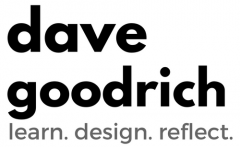In the dynamic realm of higher education, the concept of micro-credentialing has emerged as a promising avenue for learners seeking to augment their skills and knowledge. Micro-credentials, often referred to as digital badges or nano-degrees, offer a flexible and accessible means of attaining specific competencies within a particular domain. However, amidst the enthusiasm for this innovative approach, it’s essential to distinguish what micro-credentialing is, what it isn’t, and what it could potentially evolve into, while also critically examining its strengths and pitfalls.

What is Micro-credentialing?
Micro-credentialing is a process through which learners acquire recognition for mastering specific skills or competencies, typically through short-term, targeted educational experiences. These credentials are awarded upon the completion of focused courses, projects, or assessments, often facilitated by educational institutions, professional organizations, or online learning platforms. Unlike traditional degrees, micro-credentials emphasize proficiency in discrete areas of expertise, allowing individuals to tailor their learning journey to align with their personal and professional goals.
What Micro-credentialing Isn’t
It’s crucial to recognize that micro-credentialing is not a substitute for traditional degrees or comprehensive educational programs. While micro-credentials offer valuable opportunities for skill acquisition and professional development, they do not encompass the breadth and depth of knowledge conferred by a formal degree. Additionally, micro-credentials may not always carry the same level of recognition or legitimacy within certain industries or academic circles, underscoring the importance of discernment when evaluating their relevance and applicability.
What Micro-credentialing Could Be
Looking ahead, the landscape of micro-credentialing holds considerable potential for evolution and expansion. As advancements in technology continue to reshape the educational landscape, micro-credentials have the opportunity to become increasingly personalized, adaptive, and integrated into lifelong learning pathways. Furthermore, collaborations between educational institutions, employers, and credentialing bodies could lead to the development of standardized frameworks for assessing and validating micro-credentials, enhancing their credibility and portability across diverse contexts.
Exploring Strengths and Pitfalls
While micro-credentialing offers numerous benefits, including flexibility, affordability, and targeted skill development, it also presents certain challenges and considerations.
Strengths:
- Flexibility: Learners can pursue micro-credentials at their own pace and convenience, accommodating busy schedules and diverse learning preferences.
- Relevance: Micro-credentials focus on specific competencies that align with current industry demands, allowing individuals to acquire skills that are directly applicable to their professional endeavors.
- Accessibility: Micro-credentials are often delivered through online platforms, making them accessible to learners worldwide, regardless of geographical location or socioeconomic status.
Pitfalls:
- Quality Assurance: Ensuring the rigor and credibility of micro-credentials can be challenging, particularly in the absence of standardized assessment and accreditation processes.
- Fragmentation: The proliferation of micro-credentials from various providers may result in fragmentation and lack of coherence within individuals’ learning pathways, posing challenges for employers and educational institutions when evaluating candidates’ qualifications.
- Equity Concerns: There is a risk that micro-credentialing initiatives may exacerbate existing inequities in education and employment opportunities, particularly if access to resources and support services is unequal across diverse learner populations.
Join the Discussion
As we navigate the terrain of micro-credentialing in higher education, it’s essential to engage in a dialogue that encompasses diverse perspectives and insights. What are your thoughts on the strengths and pitfalls of micro-credentialing? How can we harness its potential to foster lifelong learning and professional development? Share your thoughts and experiences in the comments below, and let’s explore this evolving educational paradigm together.
